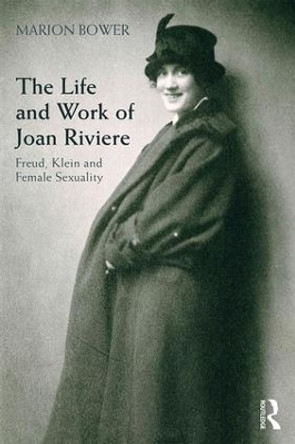Description
About the Author
Joan Riviere was born in Brighton, Sussex, in 1883, and was educated firstly in Brighton itself and then at Wycombe Abbey School, a well-known girls' boarding school. Although she received no university education, an event of great significance for her later career occurred in her seventeenth year when she was sent to live with a family in Gotha, Germany, in order to acquire proficiency in the German language. In 1906 she married Evelyn Riviere, a barrister at the Chancery bar and son of the successful Victorian painter, Breton Riviere. By 1915 she had entered into analysis with Ernest Jones, and some years later embarked on her first translations of papers by Freud. When the analysis with Jones proved unsatisfactory she became, for a brief period, Freud's analysand. Freud was quick to discern her potential usefulness to the psychoanalytic cause as a sensitive and creative translator, and in 1922 she was appointed Translation Editor of the 'International Journal of Psycho-Analysis'; a position she occupied until 1937.It is uncertain when Joan Riviere and Melanie Klein first met but, by the time Mrs. Klein settled in London in 1926, she was already established as An early supporter. In later years Riviere emerged as one of the most articulate proponents of Kleinian ideas, working closely with Mrs. Klein during the 1930s and 1940s, and publishing several papers of her own. A certain coolness, however, developed between Klein and Riviere in the 1950s as Riviere-always uneasy in groups- gradually withdrew from the growing circle of students and supporters who surrounded Klein as her influence and authority made themselves felt.Since her death in 1962, Joan Riviere's reputation has rested principally on her early achievement as a translator and on her later role as a persuasive and lucid disseminator of Freudian and Kleinian ideas. The respect gained for her in these quarters has, however, tended to obscure the importance and originality of her own contributions to psychoanalytic literature. It is to be hoped that this volume will go some way to redressing the balance and allow the reader to establish the great value of Joan Riviere's contribution to psychoanalytic theory and practice.
Reviews
Joan Riviere was born in Brighton, Sussex, in 1883, and was educated firstly in Brighton itself and then at Wycombe Abbey School, a well-known girls' boarding school. Although she received no university education, an event of great significance for her later career occurred in her seventeenth year when she was sent to live with a family in Gotha, Germany, in order to acquire proficiency in the German language. In 1906 she married Evelyn Riviere, a barrister at the Chancery bar and son of the successful Victorian painter, Breton Riviere. By 1915 she had entered into analysis with Ernest Jones, and some years later embarked on her first translations of papers by Freud. When the analysis with Jones proved unsatisfactory she became, for a brief period, Freud's analysand. Freud was quick to discern her potential usefulness to the psychoanalytic cause as a sensitive and creative translator, and in 1922 she was appointed Translation Editor of the International Journal of Psycho-Analysis; a position she occupied until 1937.It is uncertain when Joan Riviere and Melanie Klein first met but, by the time Mrs. Klein settled in London in 1926, she was already established as An early supporter. In later years Riviere emerged as one of the most articulate proponents of Kleinian ideas, working closely with Mrs. Klein during the 1930s and 1940s, and publishing several papers of her own. A certain coolness, however, developed between Klein and Riviere in the 1950s as Riviere-always uneasy in groups- gradually withdrew from the growing circle of students and supporters who surrounded Klein as her influence and authority made themselves felt.Since her death in 1962, Joan Riviere's reputation has rested principally on her early achievement as a translator and on her later role as a persuasive and lucid disseminator of Freudian and Kleinian ideas. The respect gained for her in these quarters has, however, tended to obscure the importance and originality of her own contributions to psychoanalytic literature. It is to be hoped that this volume will go some way to redressing the balance and allow the reader to establish the great value of Joan Riviere's contribution to psychoanalytic theory and practice.
Book Information
ISBN 9780946439942
Author Joan Riviere
Format Paperback
Page Count 392
Imprint Karnac Books
Publisher Taylor & Francis Ltd





